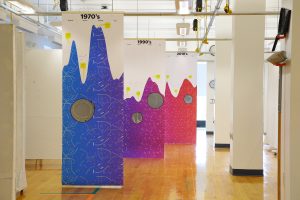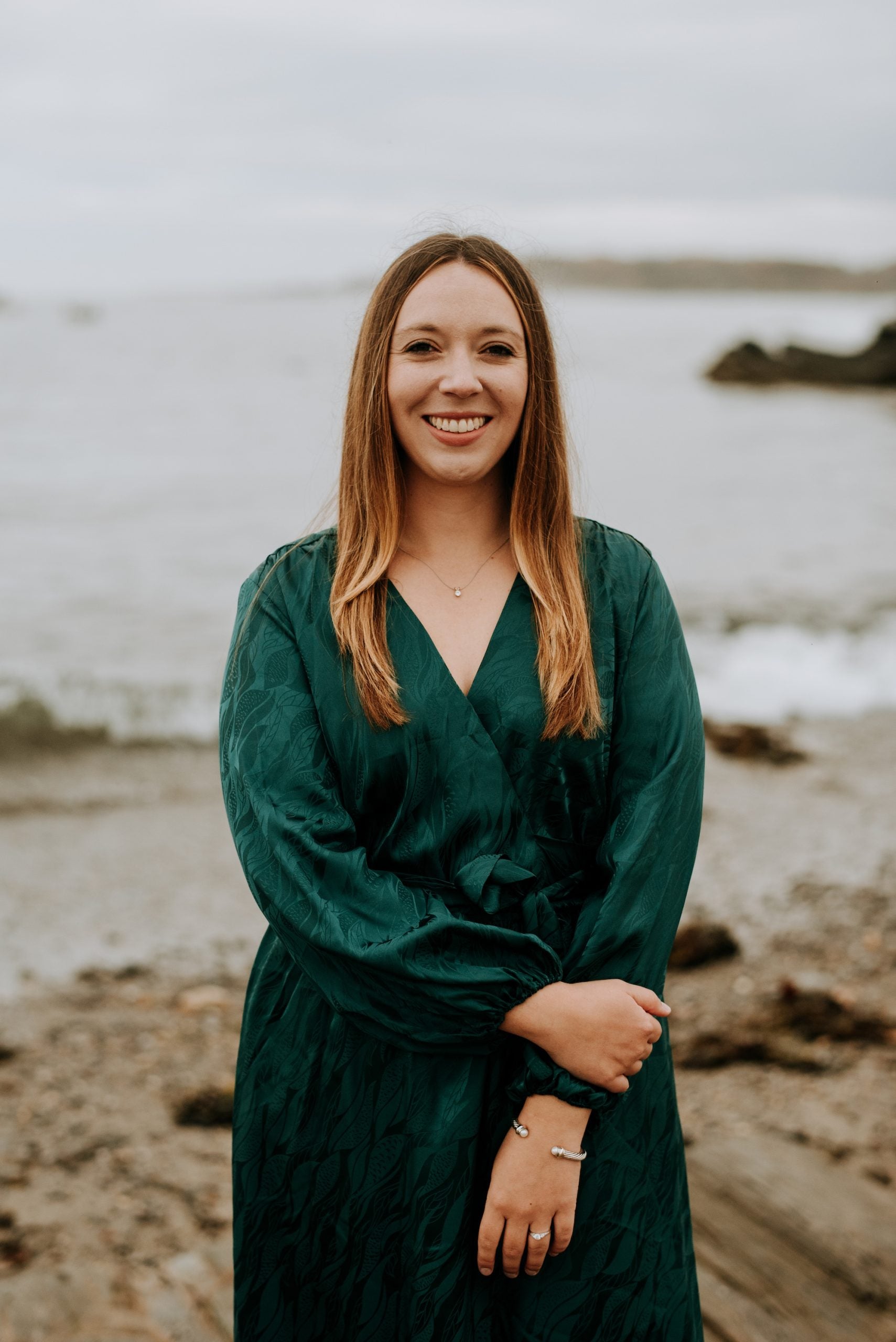Most people don’t think about plankton on a regular basis, but Metcalf alum Dr. Tricia Thibodeau has spent years learning about how these microscopic organisms can reveal a lot about their surroundings. “They’re like a microscope into the ocean,” she shares. “I ended up getting really interested in plankton because they’re basically these indicators of ecosystem health.” Today she studies “the effects of rapid climate change on phytoplankton and zooplankton populations and physiology.” Her focus on plankton has inspired innovative projects and collaborations throughout her academic career and continues to fuel her work today.
Growing up on the coast of Maine instilled a love of the ocean as an important part of her life. While attending Bowdoin College, a professor encouraged her to look into oceanography and she was excited that the field allowed her a lot of time in the field where she could be outside and on ships.
Thibodeau pursued a Doctor of Philosophy in Marine Science at the Virginia Institute of Marine Science where she joined Dr. Deb Steinberg and her team on the Palmer Long Term Ecological Research Project. Her focus shifted to zooplankton, specifically pteropods, also known as sea butterflies. This led to work with plankton time series, in which she studies plankton physiology and populations over time. In her current position with URI she now studies phytoplankton – the plants of the ocean. “I’m funded by Rhode Island Sea Grant to look at the harmful algal blooms species that we have in the time series, and trying to understand their long-term change in seasonality in Narragansett Bay,” she elaborates.
While at URI, Thibodeau completed the Career Development Program Certification through Metcalf. Through the lectures and workshops that she attended, she expanded her understanding of inclusive science communication and uses those skills when posting about science on social media platforms as the current President of the Society for Women in Marine Science (SWMS). SWMS was established in 2016 at URI and has since expanded to many chapters throughout the US and around the world. The goal of this organization is to create a space for women in marine science to network, find support, and be inspired by one another. Thibodeau has been a member since its inception in 2016. “What I’ve really enjoyed the most is just bringing people together and seeing what kind of unfolds from that,” she mentions.

She also participated in the RI C-AIM Vis-a-thon, a two-day event that partnered scientists with students from RISD to combine science and art. “I wanted to illustrate that there’s been this long-term temperature increase in Narragansett Bay. So, that’s why I decided to color the panels from blue to red as we move through the different decades, and so it’s really cool to see them hanging,” Thibodeau states. She enjoyed working with artists to develop this project and her main takeaway is that “It’s not the end product, it’s the process” along the way. She was accustomed to working with science in a more traditional way and used this process as an opportunity to step outside of her comfort zone and use input from her artist partners to analyze her research.
Inspired by this merge of science and art, Thibodeau is working as a co-guest editor with a colleague for JoVE, a peer-reviewed scientific video journal, on a project titled “Data Visualization in Marine Science”. She articulates, “We thought it would be cool to do a special issue on data visualization where people could share some of the ways that they’ve been thinking about their research, either in a very non-traditional way, or a more traditional way.” She recently collected abstracts and will work with the select few chosen to submit articles. JoVE will then create short films about the work completed by the applicants to showcase their projects. Thibodeau also hopes that when helping applicants with their projects, she can employ skills she developed while working at OceanBites. “OceanBites provides an opportunity for early career scientists to work on their science communication skills by transferring marine science articles into language for a general audience.”
She hopes to teach one day in courses such as biological oceanography or plankton ecology, where she can incorporate ideas and visual processes related to the Vis-a-thon and the Data Visualization in Marine Science project. Until then she plans to continue developing her inclusive science communication skills and contribute to research projects that keep her close to the ocean.
This feature was written by Sarah Schechter, a graduate student in the URI Master’s of Environmental Science & Management program with a concentration in Environmental Communication. Sarah is a URI College of the Environment & Life Sciences Communication Fellow.

